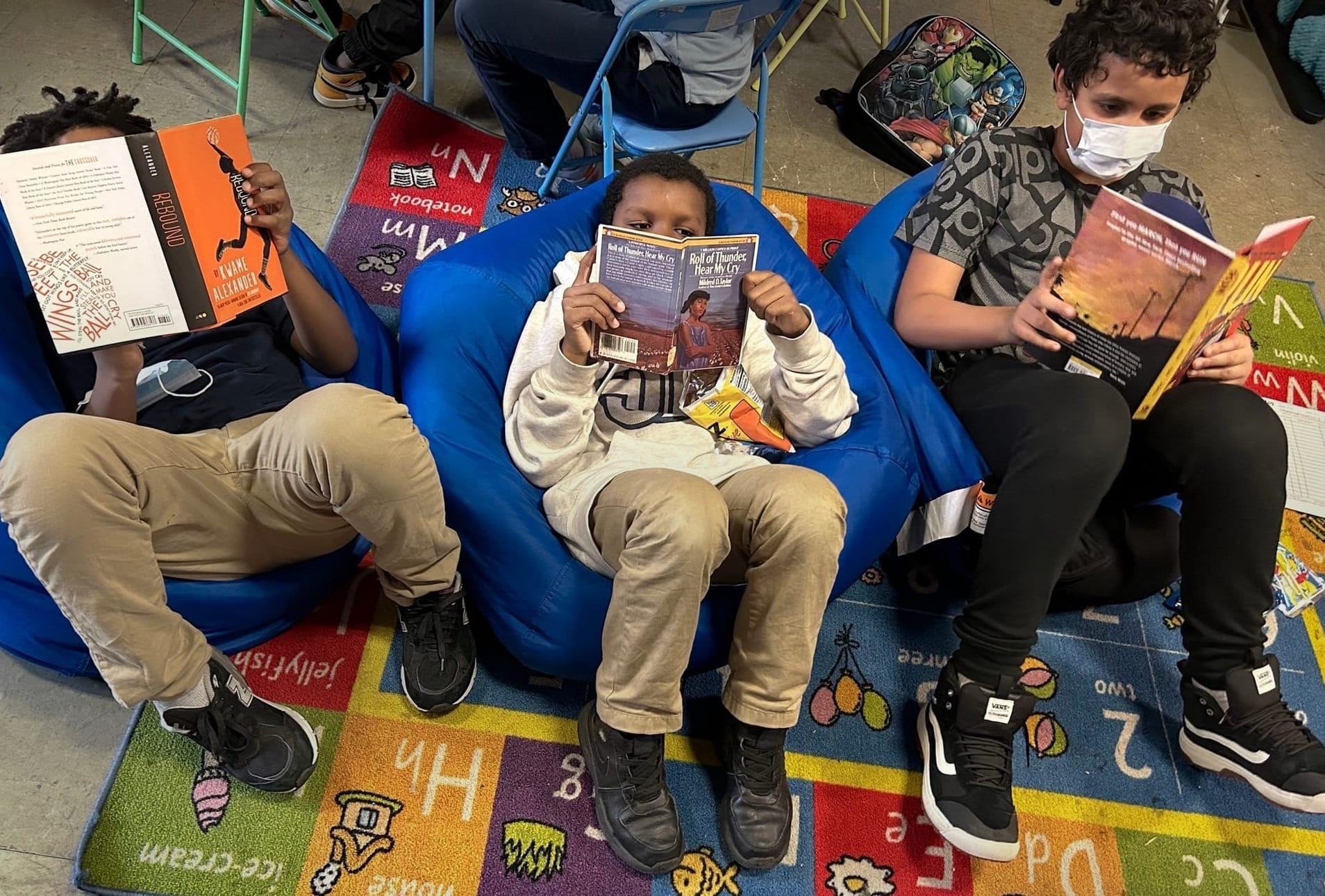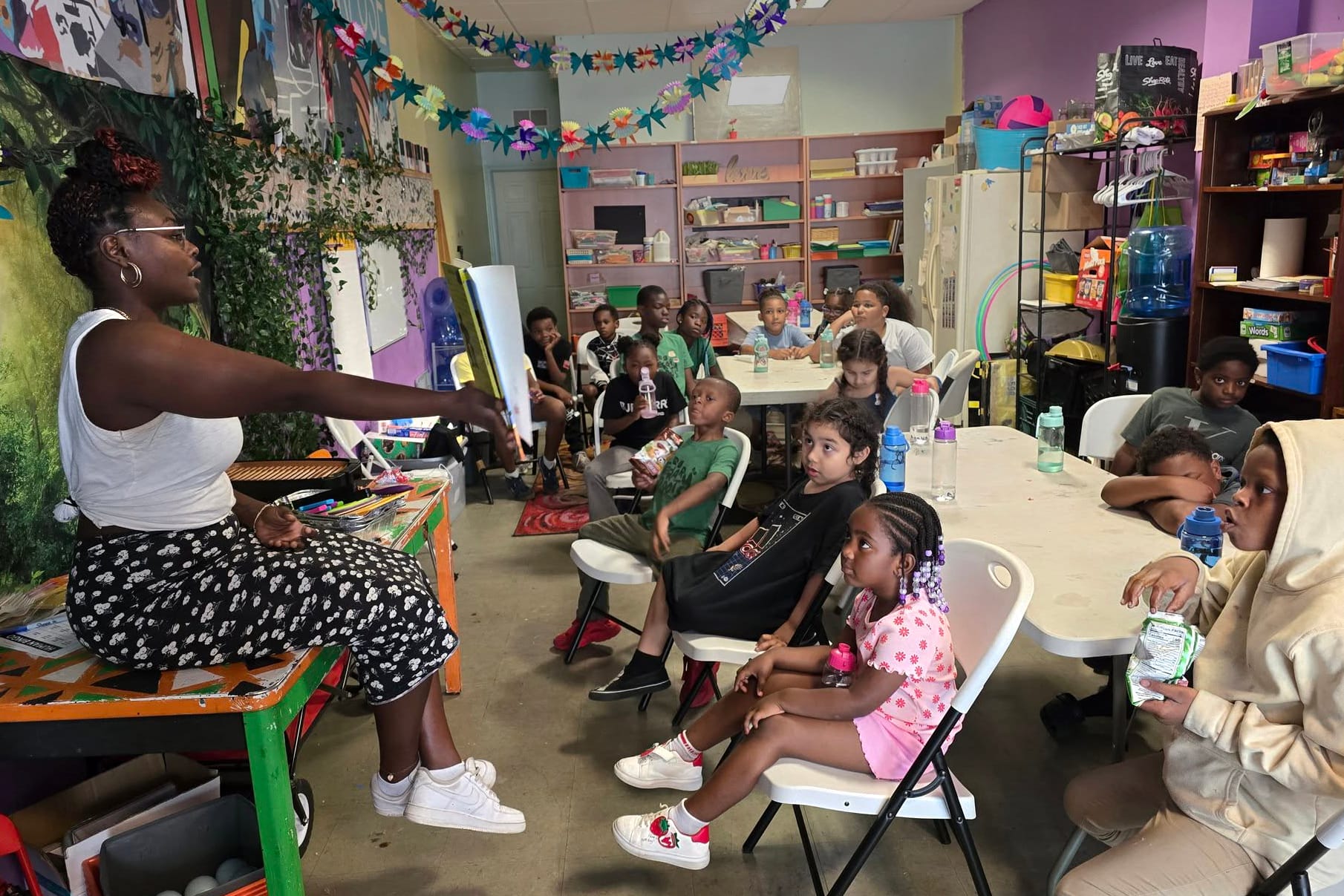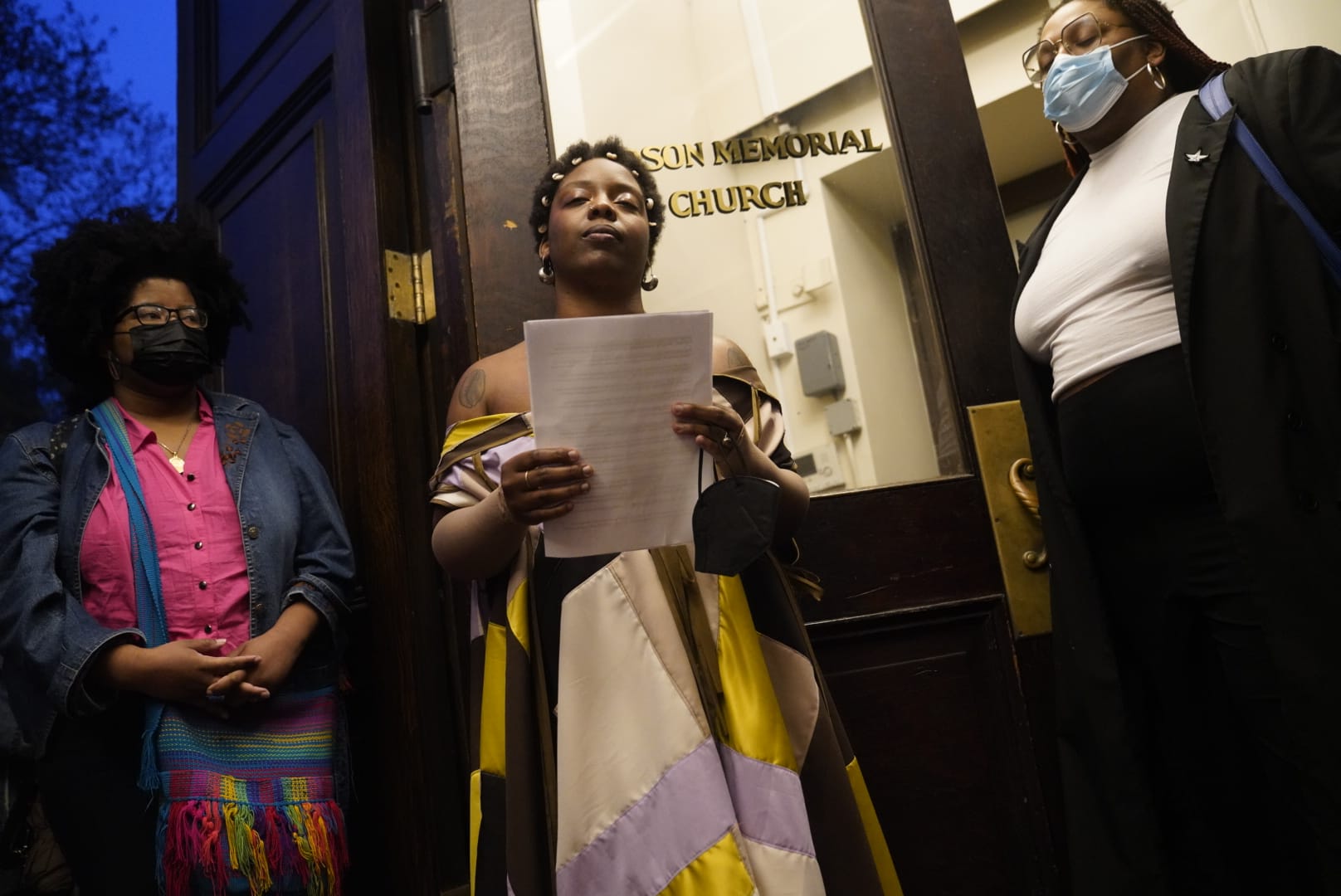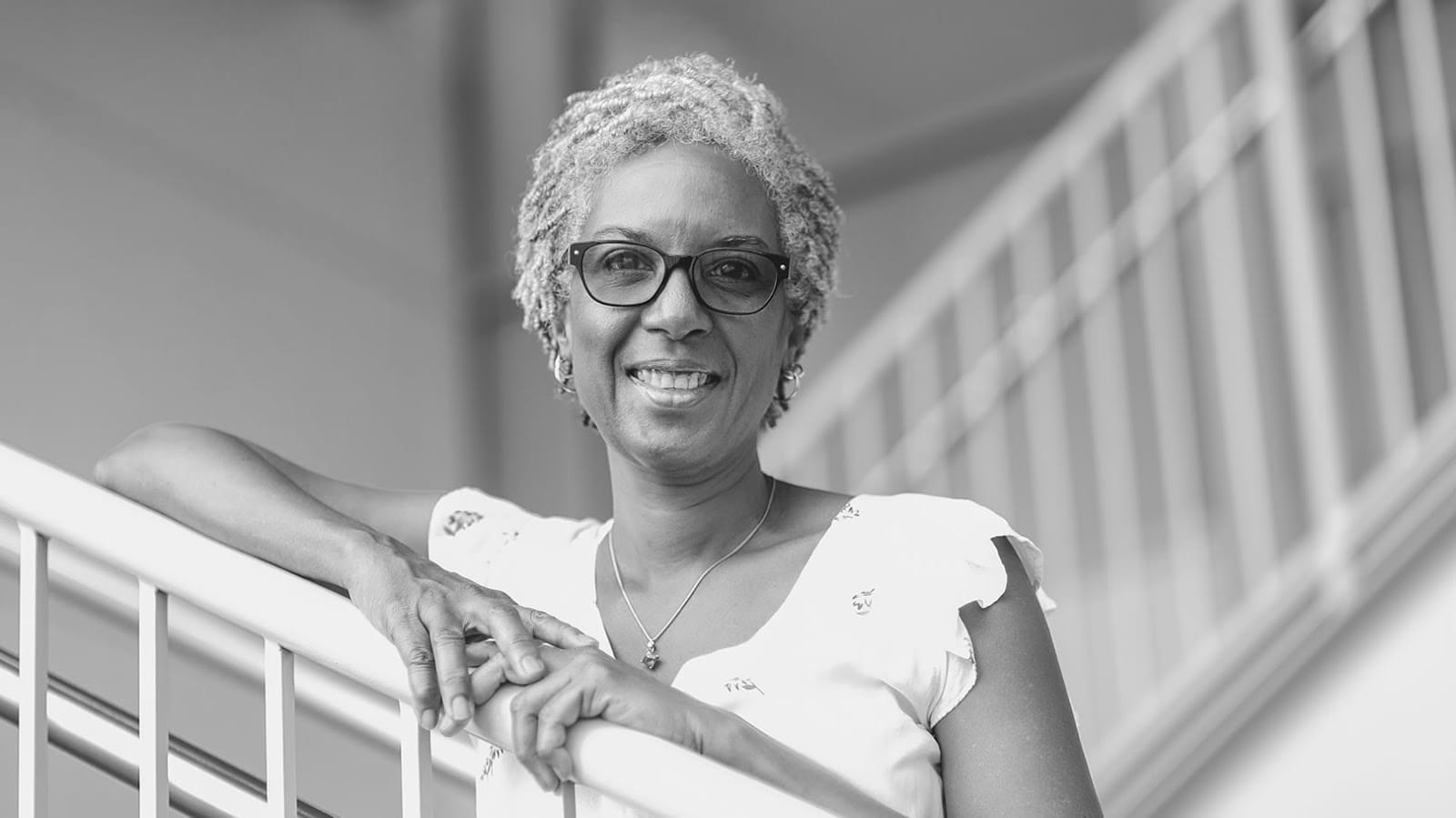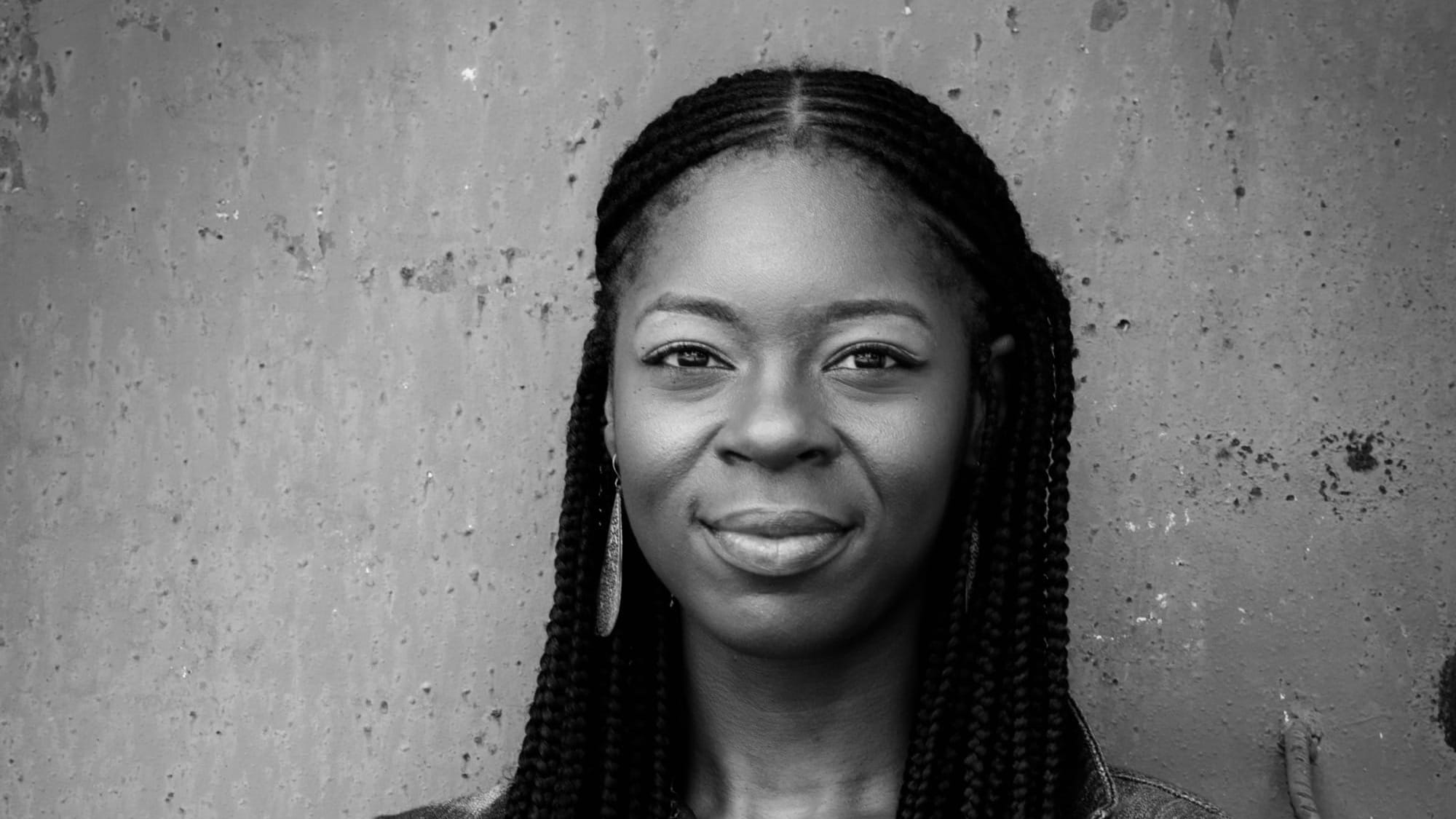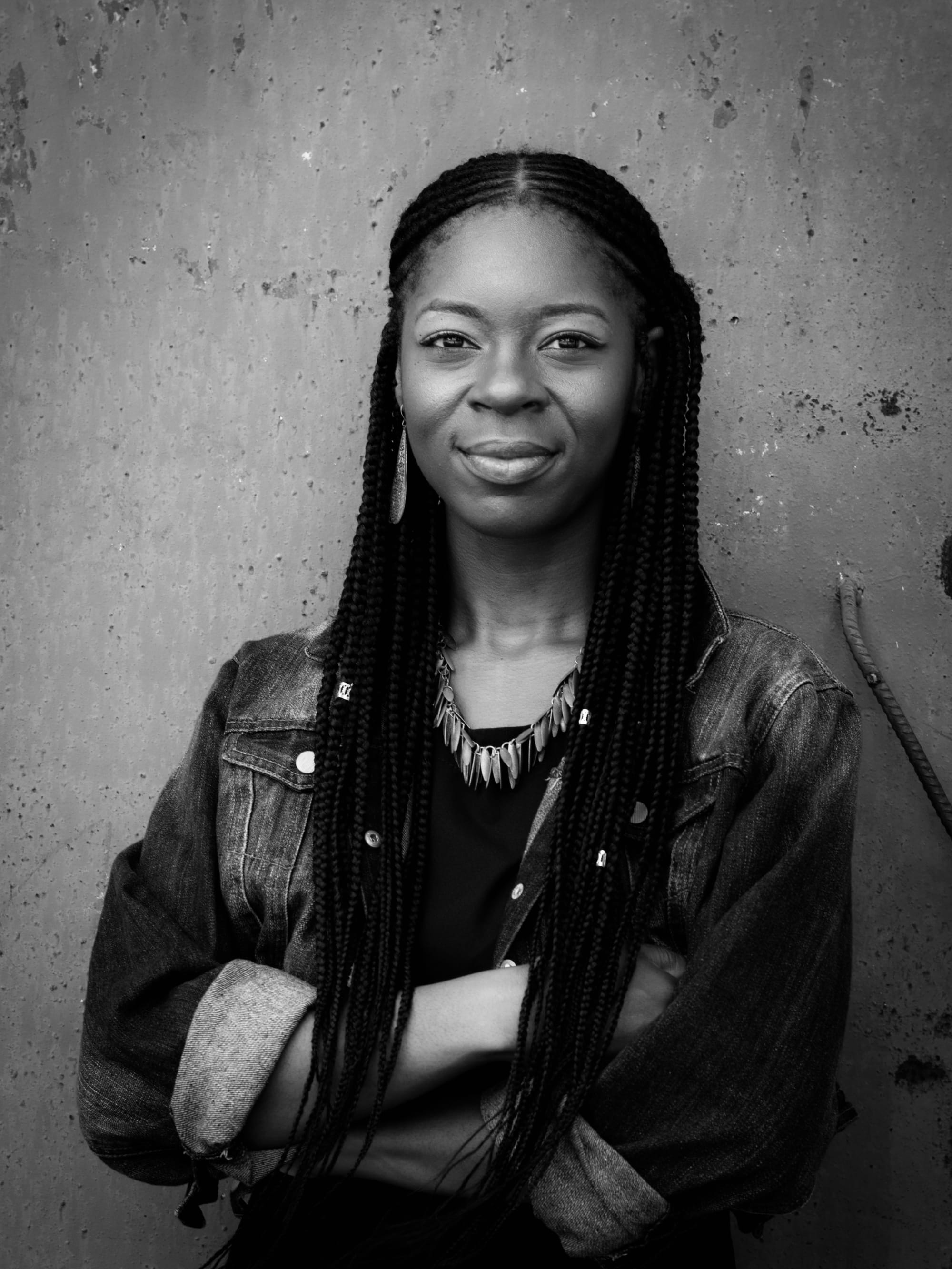It’s Me They Follow: Jeannine Cook’s First Book Is A Reminder To Keep Going
"So when I think about the story and narrative and what it’s telling me, it’s that. Freedom starts where? It’s not some external thing.”
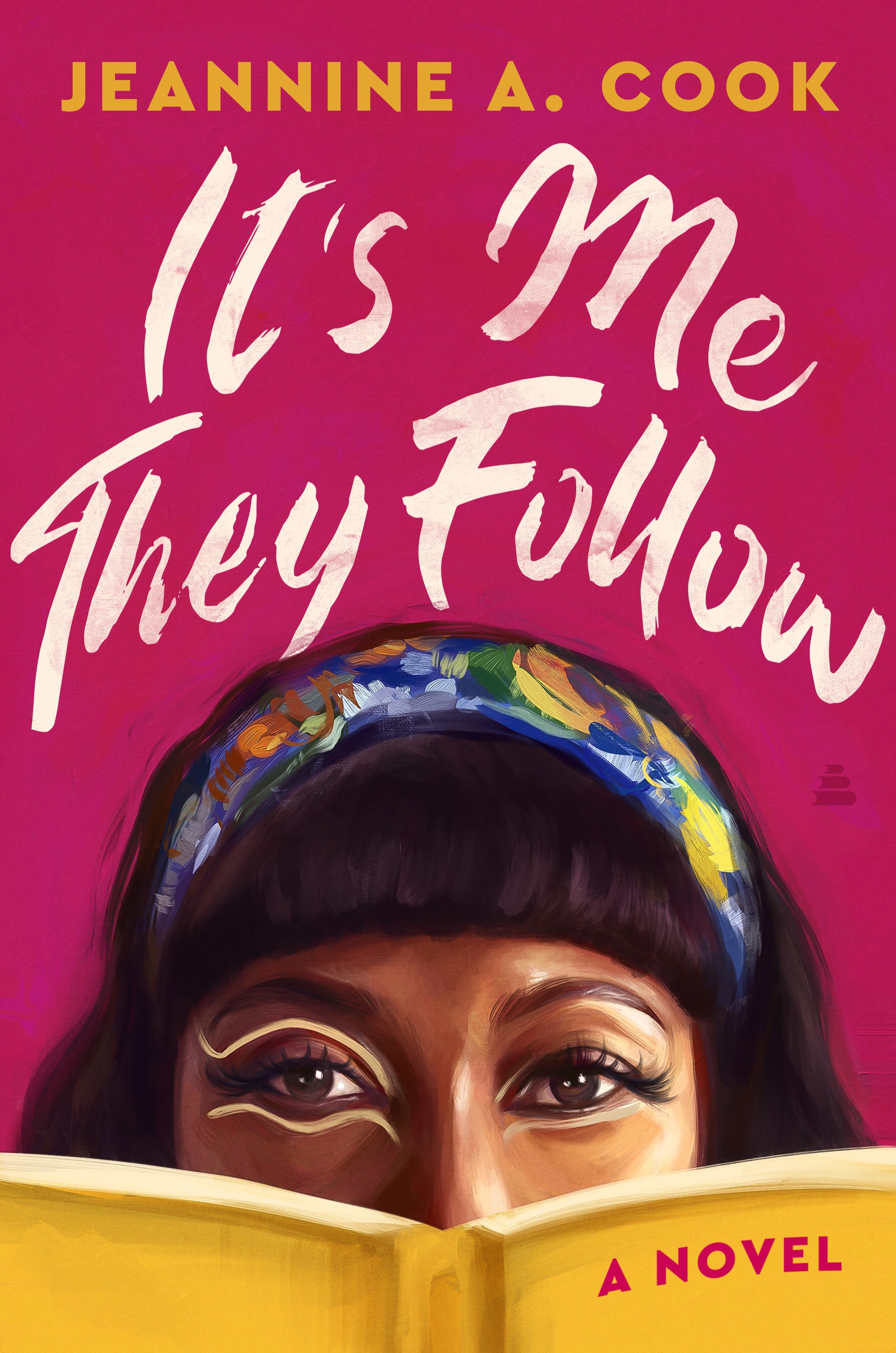
Jeannine Cook is beloved in the city of Philadelphia and beyond. Her commitment to preserving Black culture is etched in her brick-and-mortar bookstores– Harriet’s, Ida’s, and Josephine’s– each an ode to heroic Black women.
Now, with the release of Cook’s first book, It’s Me They Follow, Philadelphia eagerly awaits to see this truth-teller, griot, and business owner step into her next phase by adding another title to her name: author.
The Philly Download sat down with the multi-hyphenate creative, on the cusp of evolving from shopkeeper to novelist, to discuss her journey, the power of layered storytelling, and the responsibility of writing Black joy in these challenging times.
Joi Weathers: “You’ve long been known as a cultural anchor through Harriet’s Bookshop: How did you know it was time to step into the role of storyteller yourself?”
Jeannine Cook: “I been writing since I was a child. I like words and fly sentences. I've always liked seeing where it's taking me. Now it’s like, “wow, this really can happen.” I've always been in the book world, so it makes sense. I wish I would have done it sooner, but all things in due season.
There's a line the narrator says in the book, “Many feel this call, it’s a few people who pick up the phone and do something about it.” My hope is that more people do pick up that phone.”
JW: “This novel is a love letter to books, readers, and Philadelphia. What does it mean to root a magical love story in a city that has shaped your work and your sense of responsibility?”
JC: “I came to Philly when I was seventeen, and I spent my adult life in the city, and it’s amazing to me because I wasn't raised here. I fall in love and re-fall in love, again and again, and then some things don't change.
One time, I was on the phone with the Harper Collins team, and there was some going back and forth (noise) behind me, and they heard— the Sound of Philly. The musical presence, and some say soul, was created here.
I think Philly has a freedom. I've researched why this space is called Fishtown. Even before it was colonized, people still came to Philadelphia. It was always a meeting ground. Something has always been rooted in this land, and I believe it is still here. Harriet's first stop to freedom was here. Same thing for my own journey, I GOT out of the south, and this is where my seed was planted."
JW: "What was the single most surprising discovery you made about yourself during the writing process?"
JC: “When I first got to Drexel University, and I was in the 1st cohort of a new program, and I didn’t know I could do this. I had all these learning challenges, but I also had strategies, and I had friends to help me. I said I can’t write more than five pages—ever. I said, I can write creative nonfiction, and I write short. That was my comfort and safe zone.
And I was told either you're gonna do the assignments or not. So, that experience led me to try different genres and not tell myself what I can't do. Keep adding those five pages together until you’re done.
So my biggest surprise is that I could write a full body of work. There is no greater freedom than being freed from the shackles we put on ourselves. So, when I think about the story and narrative and what it’s telling me, it’s that. Freedom starts where? It’s not some external thing.”
JW: “Referring to your novel, The Shopkeeper is brilliant at pairing others with stories that change them — yet she struggles to find love for herself. Is that tension (community caretaking vs. private desire) something you recognize in your own life? How do you take care of yourself?”
JC: “I have been able to carve out time for myself. I take my Januarys off. I do the things I feel I am led to do, and I don't guilt myself about that. For example, I had a book launch with Keke Palmer and Tierra Whack, and I was going to Nairobi– right after my father had passed away. My friends were pushing me to take a break. And I told myself: I never have to do anything on my own.
I’m not Harriet’s. Harriet’s is so many people working to create this space. I am also on my journey. So, I went to Nairobi, and the event still happened– I produced it from Nairobi, and it was beautiful. That moment reminded me: this is not the Jeannine show. The novel was due in November, I knew what I needed and what my community was telling me I needed, and I made it happen.”
JW: “What practical or spiritual practices help you stay grounded when transitions feel big or uncertain?”
JC: “The elders, especially in this particular phase of my life, mean I spend a lot of time with them. My agent is 83 or 84. She helps me understand the history of publishing. She has sat in her seat and evolve and not evolve in many ways– why would that be the agent I was given? She helps me be a link to the past.
Sometimes we out here floating, and we don't need to be. These are our roots. My grandma will be 87, and Sister Sonya {Sanchez} is 91. These are the people I find myself drawn to when I need that peace.
Nairobi took me to Wangari (Wangari Maathai, an award-winning scientist). She took me into the forest. So it started me forest walking, specifically, there is one in South Jersey that is an untouched forest, and it’s very rare on the East Coast.
I go to Saddler’s Woods– you got this plot of land this man bought himself out of enslavement, so in his will, he said I don't want this forest to be touched. You have these forests you can walk through, and so it’s given me something I needed, that’s not readily accessible. You can touch a tree that someone 400 years ago touched… It’s here for you and for us. That is the connectivity I seek.”
JW: “If Harriet or Ida could speak back to The Shopkeeper, what do you hope it would say?”
JC: “Keep going! As long as people keep coming, Ima keep going because something is happening. I am doing my part as best I can, and they {the ancestors} meet me halfway. As long as I do my part, they do theirs— I want to reiterate that.
If Harriet had literal dogs chasing her, people saying, “If you find this woman, kill her.” If she had that kind of pressure, then I can answer the call. If Ida B. Wells–- having her whole friend group lynched could move forward, so can I. This is not a game. They prove this is part of the work– one foot in front of the other.
My nana says, “Keep walking, stay on the water.” We can say things and it has all these layered meanings, and it ain't for everyone to understand. Harriet's is for who it’s for. It resonates.”
